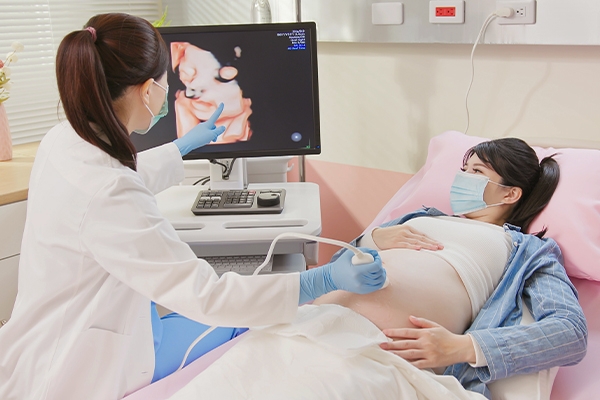Prenatal Checkups: The Key to a Healthy and Safe Pregnancy

“You’re pregnant.” Those words bring joy and mark the beginning of an extraordinary journey toward welcoming a new family member. To ensure a healthy delivery and keep both mother and baby in good shape throughout pregnancy, it’s essential to attend regular prenatal checkups.
Why is prenatal care important?
Routine prenatal care aims to:
- Make pregnancy safer for both mother and baby
- Monitor the well-being and development of the baby
- Detect potential health concerns early
Studies show that prenatal care reduces the risk of having a baby with low birth weight.
It’s not just about routine exams. It’s one of the best ways to prepare both physically and mentally for labor and parenthood.
Physical changes during pregnancy

Most pregnant women gain around 10–12 kg (22–26 lbs), especially after 20 weeks. This is normal, as the body stores fat for breastfeeding and the baby continues to grow.
However, excessive weight gain can increase the risk of pregnancy complications.
That’s why it’s essential to:
- Follow a healthy, balanced diet
- Stay physically active with light exercise
- Take prenatal vitamins, especially folic acid to help prevent birth defects of the brain and spine, and iron to reduce the risk of anemia
Also, avoid anything that could harm your pregnancy, such as smoking, alcohol, or taking medications without medical supervision.
Prenatal visit schedule
Here's a general timeline for prenatal visits:
- Week 8: First visit to confirm the pregnancy and perform initial screenings
- Weeks 4–28: One visit every 4 weeks
- Weeks 28–36: One visit every 2 weeks
- Weeks 36 until delivery: Weekly visits
These checkups allow your doctor to monitor your condition and respond early if any issues arise.
Benefits of routine prenatal checkups
1. Early detection of pregnancy risks
At your first visit, your doctor will assess your health and medical history. Conditions like diabetes or high blood pressure can affect pregnancy. Early detection allows for timely management.
2. Ensuring the baby’s development is on track
Through ultrasound scans, blood tests, and physical exams, your doctor can monitor your baby’s growth and make sure everything is progressing normally.
3. Lowering the risk of preterm birth
Routine checkups help identify signs of preterm labor early, so doctors can intervene and help prevent early delivery.
4. Supporting the mother's mental and emotional well-being
Pregnancy can be emotionally challenging, especially for first-time moms. Regular checkups give you a chance to ask questions, share concerns, and feel more prepared for motherhood.
5. Increasing the chances of a safe, positive birth
By monitoring your pregnancy closely, potential complications can be addressed early, helping you approach labor with greater confidence and peace of mind.
What’s checked during prenatal care?

1. Blood pressure
Measured at every visit. High blood pressure could be a sign of preeclampsia, a serious condition that requires immediate attention.
2. Blood tests and ultrasound scans
These tests assess both mother's and the baby’s health. Ultrasounds help confirm gestational age and screen for visible physical abnormalities.
3. Blood type and Rh factor
Knowing whether you’re Rh-positive or Rh-negative is important. If you’re Rh-negative, you may need a special injection to prevent Rh incompatibility, which could harm the baby.
4. Iron-deficiency anemia
Anemia can cause extreme fatigue and increase risks during labor, including bleeding.
If detected, your doctor may prescribe iron and folic acid supplements or even a blood transfusion, if necessary.
5. Gestational diabetes
Risk factors include:
- Being overweight
- A history of gestational diabetes
- Previously giving birth to a baby weighing over 4.5 kg (10 lbs)
- A family history of diabetes
If you're at risk, you’ll undergo an Oral Glucose Tolerance Test (OGTT) between weeks 24 and 28 to check for gestational diabetes.
Prenatal care is essential for ensuring a healthy pregnancy, safe delivery, and a healthy baby.
Through regular checkups, early detection of risks, and ongoing education from healthcare providers, you can navigate pregnancy with greater peace of mind and readiness.
Don’t wait to begin your prenatal care.
Discuss any questions or concerns with our doctor to get trusted, accurate information.



